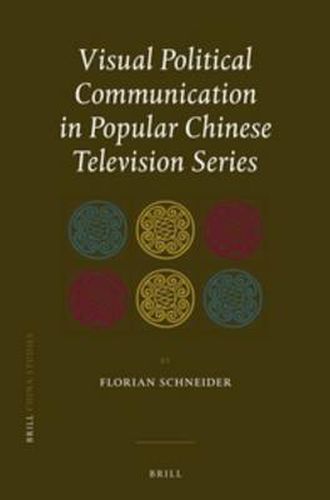Readings Newsletter
Become a Readings Member to make your shopping experience even easier.
Sign in or sign up for free!
You’re not far away from qualifying for FREE standard shipping within Australia
You’ve qualified for FREE standard shipping within Australia
The cart is loading…






Visual Political Communication in Popular Chinese Television Series has been granted the EastAsiaNet 2014 Award!
In Visual Political Communication in Popular Chinese Television Series, Florian Schneider analyses political discourses in Chinese TV dramas, the most popular entertainment format in China today. Schneider shows that despite their often nationalistic stories of glorious emperors and courageous officials, such programmes should not be mistaken for official propaganda. Instead, the highly didactical messages of such series are the outcome of complex cultural governance practices, which are influenced by diffuse political interests, commercial considerations, viewing habits, and ideological assumptions. Schneider argues that these interlinking factors lead to a highly restrictive creative environment and to conservative entertainment content that ultimately risks creating precisely the kind of passive masses that Chinese media workers and government officials are trying so hard to emancipate.
$9.00 standard shipping within Australia
FREE standard shipping within Australia for orders over $100.00
Express & International shipping calculated at checkout
Visual Political Communication in Popular Chinese Television Series has been granted the EastAsiaNet 2014 Award!
In Visual Political Communication in Popular Chinese Television Series, Florian Schneider analyses political discourses in Chinese TV dramas, the most popular entertainment format in China today. Schneider shows that despite their often nationalistic stories of glorious emperors and courageous officials, such programmes should not be mistaken for official propaganda. Instead, the highly didactical messages of such series are the outcome of complex cultural governance practices, which are influenced by diffuse political interests, commercial considerations, viewing habits, and ideological assumptions. Schneider argues that these interlinking factors lead to a highly restrictive creative environment and to conservative entertainment content that ultimately risks creating precisely the kind of passive masses that Chinese media workers and government officials are trying so hard to emancipate.